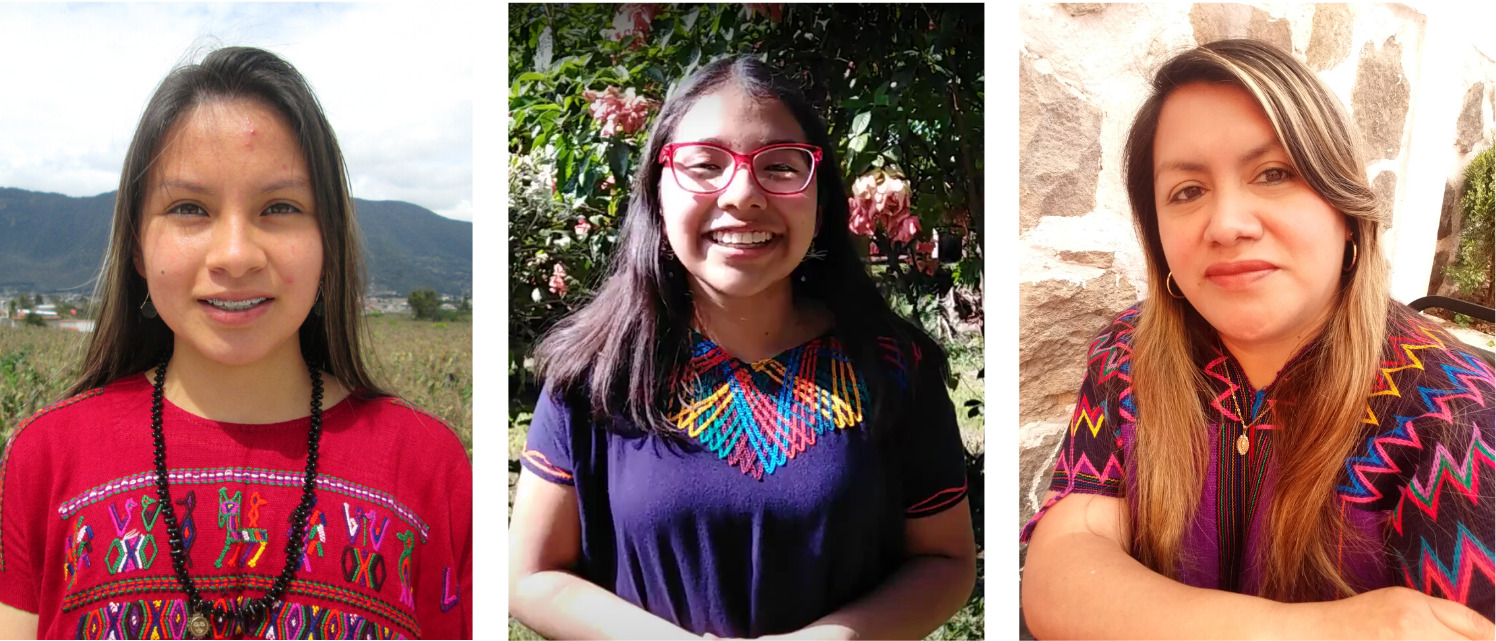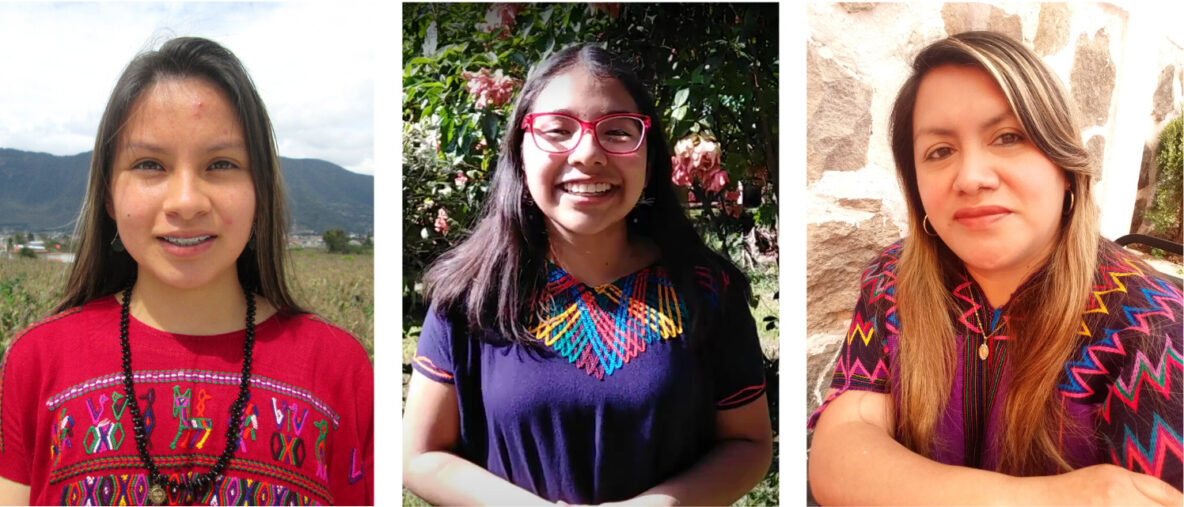Rise Up Leaders at the Generation Equality Forum
Rise Up’s network of girl and young women leaders in Guatemala, Las Niñas Lideran, was selected to help lead the Action Coalition on gender-based violence for the Generation Equality Forum. Generation Equality was established by the United Nations to celebrate the 25th anniversary of the Beijing Declaration and Platform for Action, a landmark moment that set a bold agenda for empowering girls and women around the world, and to accelerate progress toward gender equality. The Generation Equality Forum is a global gathering to connect changemakers with governments, civil society, and corporations to define and announce ambitious investments and immediate actions to advance gender equality over the next five years.
Over the past year, Rise Up Leaders Ixchel and Eyleen have represented Las Niñas Lideran and helped to ensure meaningful youth participation in the Forum. Rise Up Guatemala Country Coordinator Juany Garcia has supported these young leaders as they use this global platform to speak out for the rights of Guatemalan girls. The Forum officially kicked off in Mexico City in March 2021, and will culminate in Paris this June and July.
We asked Ixchel, Eyleen, and Juany to reflect on their experiences so far in participating in the Generation Equality Forum.

From left, Rise Up Leaders Ixchel and Eyleen and Guatemala Country Coordinator Juany Garcia
Responses have been edited for length and clarity.
Why are you excited to participate in Generation Equality?
Ixchel: “Generation Equality is a worldwide space where issues of political interest and human rights, especially those focused on female youth, are discussed and decided. It is also a space where I can talk openly with other youth leaders, representatives of the private sector, decision-makers, and founders of other organizations, in order to work together on behalf of girls, adolescents, and women around the world.”
Eyleen: “Participating in the Generation Equality Forum space has filled me with energy and hope to open the dialogue and take action to foster spaces with equity and more opportunities.”
What has been your favorite experience so far in participating in Generation Equality?
Ixchel: “I recorded a short video in which I explained the needs of children, adolescents, and youth to the presidents and representatives of all the governments that participated in the opening segment of the high-level meeting on the occasion of the 25th anniversary of the Fourth World Conference on Women and the adoption of the Beijing Declaration and Platform for Action.” [See Ixchel’s video here at the timestamp 1:00:03.]
Eyleen: “I have enjoyed getting to know more people from around the world and working across generations to achieve the same goal that has motivated me to keep going. I have also enjoyed contributing with my ideas.”
What do you want people from around the world to know about girls in Guatemala?
Ixchel: “The fact that we are Indigenous, wear Mayan dress, speak a Mayan language, are young, and live in a developing country, does not mean that we are not leaders, or that we do not have a voice to demand the fulfillment of our rights and promote changes in our country, or the necessary maturity to understand and contribute to political and social issues. We are entitled to our rights, and we only need the training, support, and investment to promote our holistic development.”
Eyleen: “We girls and adolescents have stories to tell and ideas to share. That is why we need you to take us into account in the projects you carry out for our benefit. Believe and invest in us, because in this way you are supporting us to fulfill our dreams and create a better future.”
Juany: “The girls, adolescents, and young women of Guatemala have potential; they know their reality and, most importantly, they are active and proactive. They just need decision-makers, private companies, foundations, and all those involved in investing and promoting fundamental changes to improve patriarchal, sexist, colonizing, and gender unequal systems, to listen to them. Generating laws, policies, and programs and better implementing those that already exist in our country can contribute to the holistic development of girls, adolescents, and young women.”
Why is it important for decision-makers to hear the voices of girls and young women?
Ixchel: “Because we girls and adolescents have different perspectives from those of adults and are the people closest to our own reality, we can provide information that is more accurate and better aimed at solving our problems.”
Eyleen: “We know the reality we want to change and when decision-makers take us into consideration and enable us to contribute to their plans and projects, their effectiveness increases. It is also necessary to let us lead these projects because, from experience, the impact of hearing or seeing someone from our generation lead these changes is inspiring and motivating. It is also important to invest in children and adolescents, since we can be agents of change and have an impact on our schools, communities, countries, and the world.”
Juany: “It is important that decision-makers listen to the voices of girls and young women to understand their most felt needs, their reality, their context, and all of the factors that harm them and exclude them from civil society, curtailing their dreams and, in the worst cases, putting their lives at risk. Only by listening to their voices will we be able to invest in what will truly benefit them and help improve their quality of life, creating a new generation of changemakers with open, inquisitive minds that in the not-too-distant future will be present in decision-making spaces and will improve our country.”


